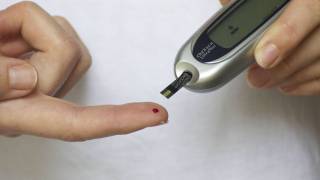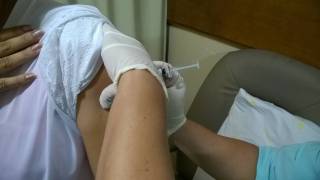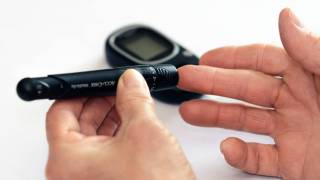GVOKE Injection Gains FDA Approval

Xeris Pharmaceuticals, Inc. announced on September 10, 2019, that it has received regulatory approval from the U.S. Food and Drug Administration (FDA) for GVOKE™ injection.
GVOKE is a ‘ready-to-use, room-temperature, stable liquid glucagon for the treatment of severe hypoglycemia in pediatric and adult patients, with diabetes ages 2 years and above.’
Glucagon is the standard of care for treating severe hypoglycemia, according to the American Diabetes Association. Glucagon should be prescribed for all individuals at increased risk of clinically significant hypoglycemia, defined as blood glucose <54 mg/dL (3.0 mmol/L).
Excerpts from this Xeris press release are inserted below:
GVOKE is the first glucagon product approved that can be administered via a prefilled syringe (GVOKE PFS) or auto-injector (GVOKE HypoPen™), vastly reducing the steps to prepare and administer glucagon in the event of severe hypoglycemia, or dangerously low blood sugar levels.
These innovative formats are designed to provide the reliability of a ready-to-use liquid glucagon while making it easier for patients or caregivers to administer quickly and simply.
GVOKE will be available in 2-doses: a 0.5 mg/0.1 mL dose for pediatric patients and a 1 mg/0.2 mL dose for adolescent and adult patients.
“Everyone managing diabetes is at risk for developing severely low blood sugar, or hypoglycemia, and we know this can quickly progress from a mild event to an emergency situation,” said Davida Kruger, MSN, APN-BC, BC-ADMCertified Nurse Practitioner, Henry Ford Health System, Division of Endocrinology, Diabetes and Bone Disorders, in this press release.
The FDA’s approval is based on positive results from three Phase 3 clinical trials evaluating the efficacy, safety, and utility of GVOKE in treating severe hypoglycemia when compared with conventional glucagon emergency kits among adults and children with type 1 diabetes (NCT02656069, NCT03091673, NCT03439072).
The studies demonstrated 100% treatment success in children and 99% treatment success in adults.
Usability research evaluating the GVOKE PFS and GVOKE HypoPen demonstrated nearly 100% success rates in administering a full dose of glucagon using the simple 2-step administration process.
GVOKE is contraindicated in patients with pheochromocytoma, insulinoma, and patients with a known hypersensitivity to glucagon or to any of the excipients in GVOKE.
Allergic reactions have been reported with glucagon and include anaphylactic shock with breathing difficulties and hypotension.
The most common adverse reactions in adults were nausea, vomiting, injection site edema, and headache. In pediatric and adolescent patients, the most common adverse reactions were nausea, hypoglycemia, vomiting, headache, abdominal pain, hyperglycemia, injection site reactions and discomfort, and urticaria.
Approximately 80 percent of side effects seen were mild, said the Company.
GVOKE is indicated for the treatment of severe hypoglycemia in patients with diabetes ages 2 years and above. GVOKE is effective in treating hypoglycemia only if sufficient hepatic glycogen is present.
Patients in states of starvation, with adrenal insufficiency or chronic hypoglycemia, may not have adequate levels of hepatic glycogen for GVOKE administration to be effective.
Patients with these conditions should be treated with glucose.
Hypoglycemic events of any severity are a daily concern for people with diabetes. Mild or moderate hypoglycemia can occur multiple times a month. Severe hypoglycemia is characterized by severe cognitive impairment, requiring external assistance for recovery, and can be extremely frightening for patients and caregivers.
Glucagon is a metabolic hormone secreted by the pancreas that raises blood glucose levels by causing the liver to rapidly convert glycogen (the stored form of glucose) into glucose, which is then released into the bloodstream.
Glucagon and insulin are two critical hormones in a glycemic control system that keep blood glucose at the right level in healthy individuals.
In people with diabetes who are dependent on insulin, this control system is disrupted, and insulin must be injected to avoid high levels of blood glucose (hyperglycemia).
The opposite effect, or low blood glucose (hypoglycemia), is also prevalent in this population due to dysregulated glucagon secretion. Severe hypoglycemia is a serious condition and can lead to seizures, coma, potential brain injury and, if untreated, death.
Please see full Prescribing Information for GVOKE PFS and GVOKE HypoPen.
Xeris Pharmaceuticals, Inc. is a specialty pharmaceutical company leveraging its novel technology platforms to develop and commercialize ready-to-use, room-temperature stable injectable and infusible drug formulations.
Published by Precision Vaccinations
Our Trust Standards: Medical Advisory Committee











